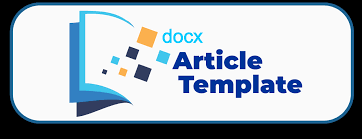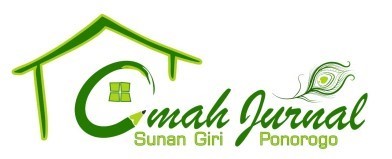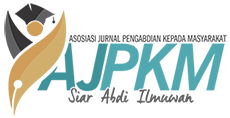Sosialisasi Pemanfaatan Mitos dalam Komunikasi Kesehatan kepada Masyarakat Desa Selasari Pangandaran
Socialization of the Use of Myths in Health Communication to the Village Community of Selasari Pangandaran
DOI:
https://doi.org/10.37680/amalee.v3i1.1065Keywords:
Covid-19, health communication, myth, paired t-test, PangandaranAbstract
The socialization activity on the use of myths in health communication through community service programs in Selasari Village, Parigi District, Pangandaran Regency was carried out to give understanding to the Selasari Village community that not all health myths provide health benefits. The method used is a hybrid lecture method that utilizes the Zoom platform application. Two teams organize activities, namely the online team and the offline team. In this activity, two central themes were presented. The first is health myths and facts. Besides that, Covid-19 myths and facts are discussed. The second theme is the benefits and dangers of health myths. The author conducted a pre-test and post-test to the activity participants to measure the level of participants' knowledge of the material presented by the two resource persons. The results of this community service activity showed an increase in participants' knowledge about health myths.
Kegiatan sosialisasi pemanfaatan mitos dalam komunikasi kesehatan melalui program pengabdian masyarakat di Desa Selasari Kecamatan Parigi Kabupaten Pangandaran dilakukan sebagai upaya memberikan pemahaman kepada masyarakat Desa Selasari bahwa tidak semua mitos kesehatan memberikan manfaat bagi kesehatan. Metode yang digunakan adalah metode ceramah hybrid yang memanfaatkan aplikasi Zoom. Terdapat dua tim yang mengatur jalannya kegiatan, yaitu tim daring dan tim luring. Di dalam kegiatan ini dipaparkan dua tema penting. Yang pertama adalah mitos dan fakta umum kesehatan, selain itu dibahas pula mitos dan fakta Covid-19. Tema yang kedua adalah manfaat dan bahaya mitos kesehatan. Penulis melakukan pre-test dan post-test kepada peserta kegiatan untuk mengukur tingkat pengetahuan peserta terhadap materi yang disampaikan oleh dua narasumber. Hasil dari kegiatan pengabdian pada masyarakat ini menunjukkan bahwa terjadi peningkatan pengetahuan peserta mengenai mitos-mitos kesehatan.
References
Aotama, F. F., & Mandome, A. A. (2020). Strategi Komunikasi Kesehatan Bagi Tingkat Kepatuhan Pasien Instalasi Rehabilitasi Medik RSUP Prof. Kandou Manado. Komunikologi: Jurnal Pengembangan Ilmu Komunikasi Dan Sosial, 4(2), 196–206. https://doi.org/10.30829/KOMUNIKOLOGI.V4I2.8406
Humaeni, A. (2013). Makna Kultural Mitos dalam Budaya Masyarakat Banten. Antropologi Indonesia, 33(3). https://doi.org/10.7454/ai.v33i3.2461
Liliweri, A. (2011). Dasar-dasar Komunikasi Kesehatan. Pustaka Pelajar. http://perpustakaan.bppsdmk.kemkes.go.id//index.php?p=show_detail&id=2262
Madjid, N. (1995). Islam agama peradaban : membangun makna dan relevansi doktrin Islam dalam sejarah (M. W. Nafis (ed.)). Paramadina. https://opac.perpusnas.go.id/DetailOpac.aspx?id=161678
Masrina, D., Arifin, H. S., & Fuady, I. (2021). Distribusi Data dan Informasi JKN-KIS PBI di Desa Cintaratu Kabupaten Pangandaran. Amalee: Indonesian Journal of Community Research and Engagement, 2(2), 129–139. https://doi.org/10.37680/AMALEE.V2I2.801
Montolalu, C. E. J. C., & Langi, Y. A. R. (2018). Pengaruh Pelatihan Dasar Komputer dan Teknologi Informasi bagi Guru-Guru dengan Uji-T Berpasangan (Paired Sample T-Test). D’CARTESIAN:Jurnal Matematika Dan Aplikasi, 7(1), 44–46. https://doi.org/10.35799/DC.7.1.2018.20113
Salisah, N. (2011). Komunikasi Kesehatan. Jurnal Ilmu Komunikasi, 1(2), 169–190.
Yusanti, E. (2019). Fungsi Mitos dalam Kehidupan Masyarakat Pulau Temiang Jambi. TOTOBUANG, 7(1), 171–181. https://doi.org/10.26499/TTBNG.V7I1.141
Downloads
Published
How to Cite
Issue
Section
License
Authors who submit manuscript retain its copyright and grant Amalee right of first publication licensed under a Creative Commons Attribution-ShareAlike 4.0 International License (CC BY-SA 4.0) that allows others to access (search, read, download, and cite), share (copy and redistribute the material in any medium or format) and adapt (remix, transform, and build upon any material) the work for any lawful purpose, even commercially with an acknowledgement of the work's authorship and initial publication in Amalee: Indonesian Journal of Community Research and Engagement.














